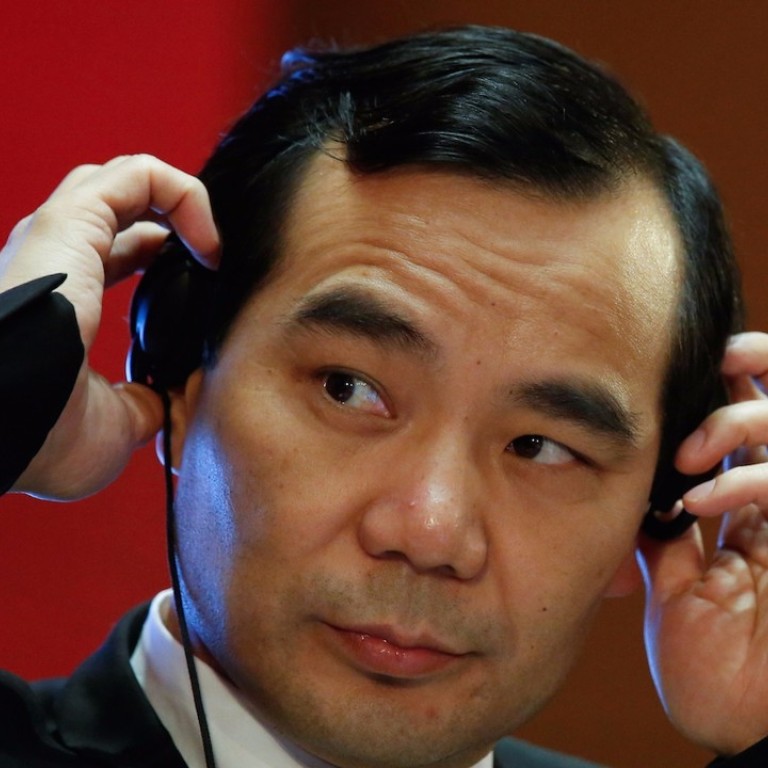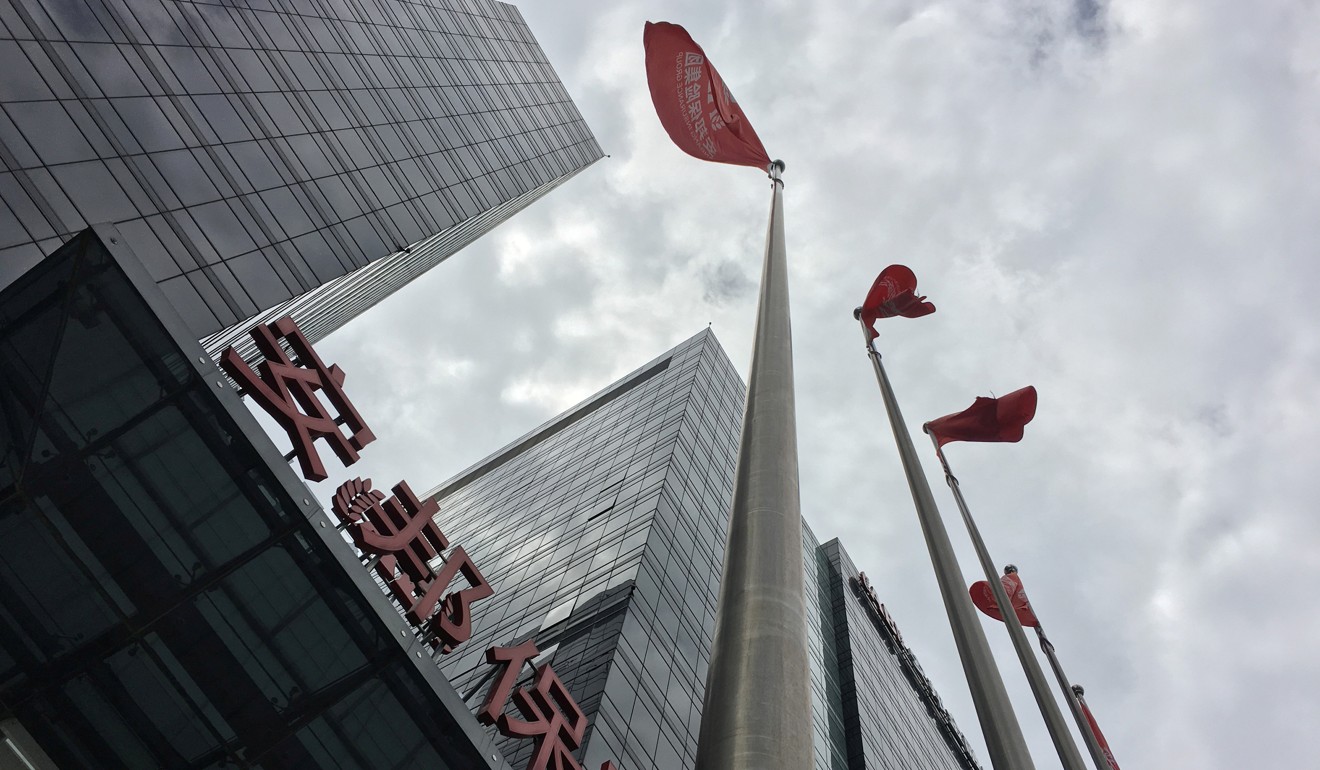
Anbang crisis threatens whole financial sector, say analysts
Uncertainty after chairman Wu Xiaohui stepped down amid reports he was taken away for investigation could spark a liquidity crunch
The fallout from the unfolding crisis at Anbang Insurance, whose chairman, the high-profile tycoon Wu Xiaohui, has stepped down amid reports he has been taken away by the authorities, could reverberate through the whole financial sector, analysts said.
Anbang, one of China’s most aggressive overseas investors, said on Wednesday Wu cannot perform his role “for personal reasons”, and has delegated his authority to other executives.
But a source familiar with the matter confirmed earlier reports in a Chinese magazine that he had been “assisting” an investigation into alleged irregularities at the company and has not returned to his office or home since the end of last week.
Analysts are worried his apparent disappearance – which comes amid a wide-ranging government campaign to impose discipline in the financial markets – could lead to a liquidity crunch that infects the wider industry.
The most worrying issue would be an intensivecancellation of [insurance] policies which would severely weigh on Anbang’s cash flow
Wu’s case could undermine a widely-held public perception of Anbang as one of China’s most resourceful and powerful companies, according to Guo Zhenhua, head of the insurance department at Shanghai University of International Business and Economics.
“The most worrying issue would be an intensive cancellation of [insurance] policies which would severely weigh on Anbang’s cash flow,” he said.
The company has relied heavily on selling high-risk, short-term insurance policies to beef up its war chest for takeover bids through the capital market.
Capital flow into Anbang will inevitably slow down because of Wu’s case and the enhanced scrutiny of regulators, which will make the company’s situation difficult, said Guo.
Anbang Life Insurance, the flagship of Anbang Insurance Group, reported a solvency ratio of 129 by the end of the first quarter, a sharp drop from 290 per cent in the same period of 2016, but still above the 100 per cent regulatory red line. Solvency ratio is a measurement that broadly describes a company’s ability to cover the financial risks it takes.
Anbang has been at the forefront of developing and promoting short-term, high-yield insurance policies, known as universal life insurance and similar to wealth management products, which in turn has fuelled a spending spree by the firm both in China and abroad in the past few years.

Shares of several publicly traded companies part-owned by Anbang Insurance Group fell in Hong Kong and mainland China on Wednesday. Publicly available information shows Anbang holds major stakes (above 5 per cent) in eight firms listed in Shanghai, Shenzhen and Hong Kong.
The aggressive investment style of insurance companies and the potential mismatch of liabilities and assets caught the attention of the authorities at the end of last year. Some of the country’s most senior figures launched a campaign to rid the financial markets of risk.
The China Insurance Regulatory Commission (CIRC) has been taking stringent measures to curb the risky, short-term products pioneered by Anbang and favoured by insurers since the high-profile dismissal of its former chairman Xiang Junbo in April. Xiang himself had been an active promoter of the universal life products.
On May 5, Anbang Life was prohibited from issuing new products for a period of three months, after the CIRC found one of its annuity products had “violated the regulator’s rules and disturbed market order”.
About a week later, the regulator expanded its crackdown to the whole sector, issuing a circular spelling out the how life insurance policies should be structured, and banning the sale of universal life insurance as an add-on to regular policies.
Analysts believe Beijing is well aware of Anbang’s vast trove of holdings in the capital markets, and will have to work carefully to avoid turmoil spreading from Wu’s case.
That would partly explain why Beijing apparently attempted to suppress the news that Wu was being probed bydeleting the first reports last night. They would have been attempting to keep the situation stable by keeping Wu’s case out of the public realm, said an insurance analyst with a state-owned fund company, who didn’t wish to be named because of the sensitivity of the issue.
Caijing, a popular Chinese magazine, first reported that the chairman had been taken away for investigation, citing anonymous sources. The article was quickly taken offline.
“All parties, including the government, share a common desire to shield Anbang from an unsustainable cascade of policy cancellations. The government would also be very adverse to any large-scale defaults prior to the upcoming 19th Party Congress this fall,” said Brock Silvers, managing director of Kaiyuan Capital, a Shanghai-based financial advisory firm.
He said Wu had shown an ability to quickly raise vast sums of money, though his methods have often been questioned. Most importantly, uncertainty surrounds the case as full details of his situation are yet to emerge.
“Fosun’s Guo Guangchang faced similar issues, without lasting detriment,” Silvers added. He was referring to the case another high-profile billionaire, who chairs Chinese conglomerate Fosun Group. Guo was reported to be out of contact when assisting authorities with a probe in December 2015, but he showed up three days later to deliver a public speech, and later said the probe was not about his business.
Anbang held a 3.4 per cent and 5.3 per cent share of the national insurance premium market in 2015 and 2016, respectively. Its market share of all investment-type products was much higher at 6.4 per cent and 19.4 per cent in those two years.
The company’s total assets are currently worth about 1.97 trillion yuan based on information on its website, a report issued by Jefferies said on Wednesday morning.
Additional reporting by Alun John

